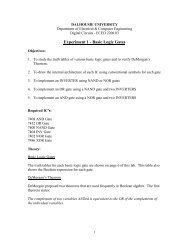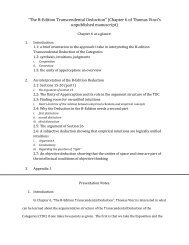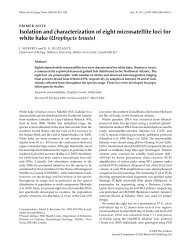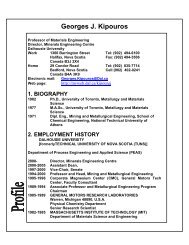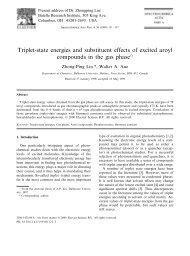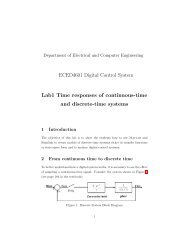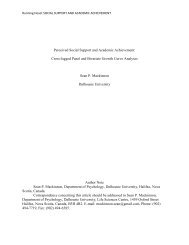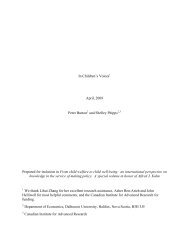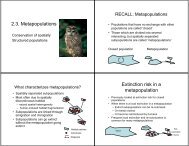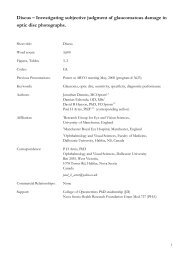Short bio of Talan ˙Iscan (“EeshJohn”) Readings Requirements
Short bio of Talan ˙Iscan (“EeshJohn”) Readings Requirements
Short bio of Talan ˙Iscan (“EeshJohn”) Readings Requirements
You also want an ePaper? Increase the reach of your titles
YUMPU automatically turns print PDFs into web optimized ePapers that Google loves.
<strong>Readings</strong><br />
Economic Growth – Econ 3310<br />
General Introduction<br />
<strong>Talan</strong> ˙I¸scan<br />
Dalhousie University<br />
Fall 2012<br />
• Weil, David. Economic Growth. 3rd edition. (Text-<br />
book)<br />
• <strong>Readings</strong> listed on the course syllabus<br />
• Lecture notes/presentations posted on the course web-<br />
site → myweb/dal.ca/tiscan<br />
1.3<br />
<strong>Short</strong> <strong>bio</strong> <strong>of</strong> <strong>Talan</strong> ˙I¸scan (<strong>“EeshJohn”</strong>)<br />
• Generation: born right after the (Canadian) baby boom<br />
• At Dalhousie since 1994<br />
• Regularly teach macroeconomics and international eco-<br />
nomics<br />
• Research interests: macroeconomics; international fi-<br />
nance; economic development; (economic history)<br />
<strong>Requirements</strong><br />
• One midterm examination (in class): 20% <strong>of</strong> final grade<br />
• Five assignments: 50% <strong>of</strong> final grade<br />
• Final examination (date/place TBA): 30% <strong>of</strong> final grade<br />
• Class participation<br />
1.2<br />
1.4
Lecture content<br />
Motivation and building foundations<br />
1. Issue: why do we care?<br />
2. Formal modeling<br />
3. Discussion: critical thinking and assessment<br />
4. Independent learning<br />
“What”s <strong>of</strong> this course<br />
• Measurement <strong>of</strong> economic well-being (outcomes)<br />
• Measurement <strong>of</strong> inputs to economic well-being<br />
• Economic history as a laboratory<br />
1.5<br />
1.7<br />
Ground rules<br />
• Attendance to lectures: effortful cognitive work<br />
• Turn <strong>of</strong>f all electronic devices: no text messaging<br />
• Work ethic<br />
“Why”s <strong>of</strong> this course<br />
1. Before industrial revolution: Why was economic growth<br />
(seemingly) so slow?<br />
2. After industrial revolution: Why did economic growth<br />
accelerate?<br />
3. Lessons for the future: Why historical knowledge?<br />
1.6<br />
1.8



